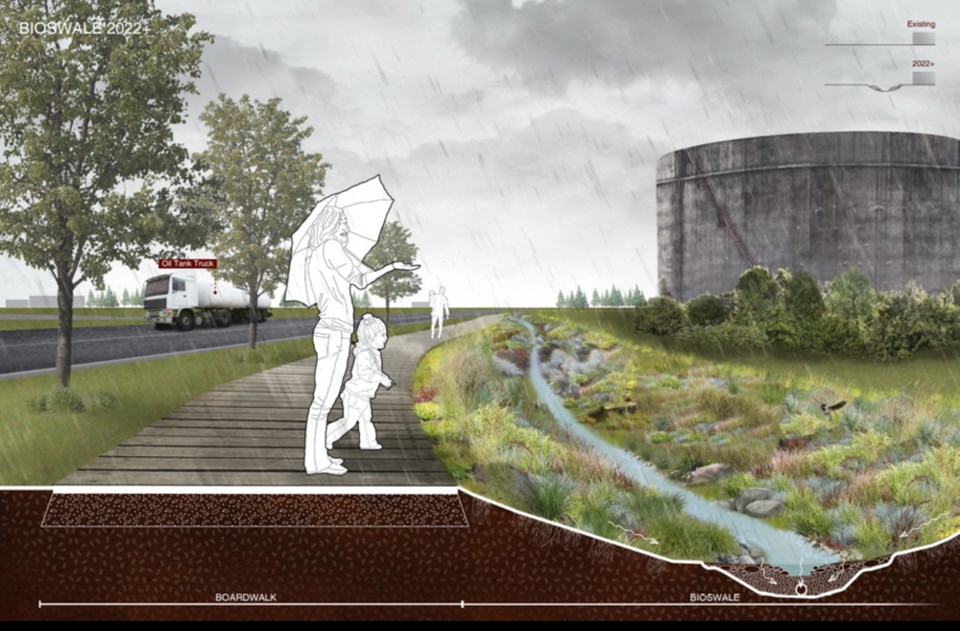Editor:
I read with great interest the article on Yueying Zhang’s reimagining of the Shellburn oil terminal site. In it, she creates a post-oil vision of the site that offers us a glimpse of what other oil storage and refining sites in Burnaby may look like in the future.
We have a unique opportunity to reimagine not just the Shellburn site, but all oil refining and storage facilities in Burnaby — including, of course, the Trans Mountain site. In order to meet even Canada’s modest targets to reduce greenhouse gas emissions, these sites need to be decommissioned sooner than later, and definitely not expanded.
The City of Burnaby and its residents can play a crucial role in this necessary transition. Burnaby’s official community plan (OCP) will be updated soon, and we can make the use of these refining and storage sites increasingly unattractive, by changing their designation in the OCP, from Industrial Bulk Storage (which isn’t even much of a tax revenue generator) to … well, that’s where imagination comes in. Ms. Zhang’s thesis on Shellburn features a post-cleanup park setting, but recreational use may be combined with residential, cultural, commercial, educational and/or technology uses. Perhaps even an opportunity to make use of renewable energy: imagine, for instance, a solar or wind farm where Trans Mountain’s tank farm now resides.
The official community plan is about creating better places for all of us to live, play and work. Everyone in Burnaby should feel encouraged to participate, though this process must of course include the Indigenous communities that have carefully stewarded the lands for countless generations, and whose guidance will help to heal what has been damaged by industry.
Changing the designation of these oil industry sites will not come without resistance from that same industry, for they steadfastly refuse to acknowledge the world is rapidly moving away from the fossil fuel economy, but someone once wrote that nothing worth having comes without some kind of fight.
It will not be quick, it will not be easy, but we have to start somewhere, now. Ms. Zhang’s thesis is but one example of the kind of visioning process we will need to meet the challenge of transitioning away from the fossil fuel economy, and towards a more sustainable one.
Scott Van Denham



